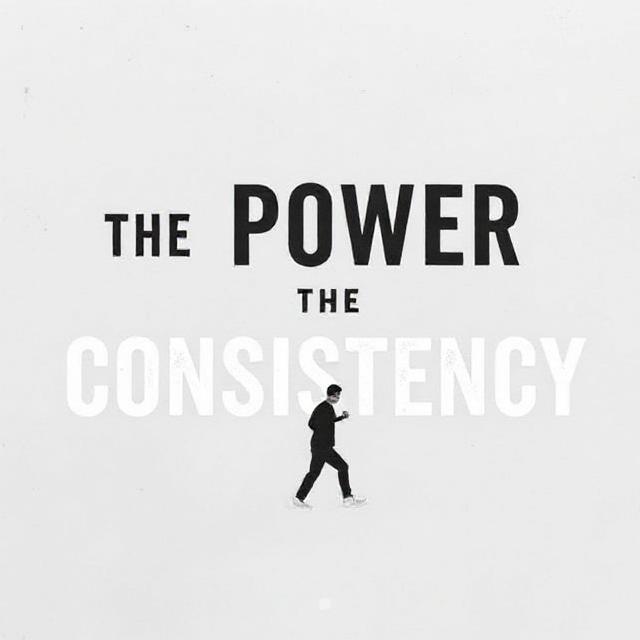
We live in a time where almost everything is just one tap away. Messages, notifications, endless scrolling, quick entertainment, and constant updates make it incredibly easy to get distracted. You sit down to work for just an hour, and suddenly you’ve replied to five chats, watched a few short videos, checked random posts, and then realized—you haven’t actually focused on anything meaningful.
This is the reality of the digital world. Focus has become a rare skill. But the good news is, focus can be trained. Just like building muscle, you can build mental discipline with small but consistent habits. This guide will walk you through simple, realistic strategies to help you stay focused even when distractions surround you.
Why We Struggle to Focus Today
It’s not that you’re lazy or incapable. The digital world is built to grab your attention. Apps are designed to trigger quick dopamine hits—likes, messages, notifications—all rewarding you instantly for small engagement.
Your brain starts preferring quick stimulation over deep work. That’s why reading a book feels harder than watching short videos. It’s not your fault; it’s your brain adapting to instant gratification.
To regain focus, you don’t need to quit technology. You just need to control your digital environment before it controls you.
Start with One Question: “What Do I Need to Focus On?”
Most people open their laptop or phone without a clear intention. That leads to mindless multitasking. So before starting any task, ask yourself:
“What exactly do I want to complete right now?”
Write it down or say it out loud. Clarity instantly reduces distraction. When your mind knows what it needs to do, it’s easier to resist unrelated tasks.
Eliminate Digital Distractions Before You Start
You can’t expect your brain to stay focused when distractions are waiting on your screen. Here’s how to prepare your environment:
- Turn off non-essential notifications (especially social media and messages).
- Use Do Not Disturb mode during focused work.
- Close extra tabs or apps you don’t need.
- Keep your phone out of sight—even seeing it reduces focus.
- Log out of apps that pull your attention.
The goal isn’t to eliminate technology—it’s to use it consciously, not reactively.
Use the “Focused Time Block” Method
Trying to stay focused for three hours straight can feel overwhelming. Instead, break it into focus blocks.
Try this:
- Work for 25 minutes with full focus.
- Take a 5-minute break.
- Repeat 3–4 times, then take a longer break.
These small blocks help your brain stay engaged. Over time, you can increase your focus sessions to 40–50 minutes. The key is one task at a time, with zero distractions during that block.
Train Your Brain with Boredom Breaks
We live in a world where we instantly seek stimulation the moment we feel bored. Waiting in line? Check your phone. Sitting alone? Open social media. But boredom is actually good for your brain. It resets your mental state and improves creativity.
Try intentionally allowing a few minutes of quiet during your day. No scrolling, no noise, just stillness. This strengthens your brain’s ability to handle calm focus instead of constant stimulation.
Create a “Distraction Parking List”
Sometimes, while working, random thoughts pop up like—
- “Let me just check this.”
- “I should reply to that message.”
- “I need to Google this quick thing.”
Here’s a better solution: write it down immediately on a note titled “Check Later”. This simple trick tells your brain you’re not ignoring it—you’re just postponing it. This keeps your focus intact without mentally resisting distractions.
Use Strategic Breaks Instead of Mindless Scrolling
Breaks are necessary, but scrolling through endless content doesn’t rest your brain—it overstimulates it. A better way to refresh is through:
- A short walk
- Stretching or breathing
- Drinking water or stepping outside
- Closing your eyes for a minute
These small resets bring your attention back naturally without draining your mental energy.
Practice Single-Tasking Instead of Multitasking
Multitasking feels productive, but it actually slows your brain down. Each time you switch tasks, your brain uses extra energy to refocus. That’s why doing three things at once leaves you feeling tired but not actually accomplished.
Instead, practice single-tasking:
- Do one task fully.
- Then move to the next with full attention.
- Avoid checking phone or tabs in between.
You’ll finish faster and feel more mentally clear.
Protect Your Mental Energy in the Morning
Your morning brain has the most focus power. But if the first thing you do after waking up is check your phone or scroll through updates, you drain that fresh focus instantly.
Instead:
- Hold off on digital content for at least the first 30 minutes after waking up.
- Use that time to breathe, plan your day, or start a meaningful task.
- Even 15 minutes of focus in the morning can set the tone for the whole day.
Make Focus a Daily Habit, Not a Once-in-a-While Effort
Staying focused is not just about discipline; it’s about building a lifestyle that supports your attention. That includes:
- Sleeping well so your brain can reset.
- Reducing mental clutter by planning your tasks.
- Avoiding endless content scrolling before bed.
- Practicing small moments of silence or intentional activity daily.
Consistency builds strong mental focus over time, even if you start with 10 minutes a day.
Final Thought: Control Your Attention, Control Your Life
In today’s digital world, attention is your real currency. Everything is fighting for your focus, and the person who can control their attention will always stay ahead—more successful, more peaceful, and more productive.
You don’t need to fight technology—you just need to use it with intention. Start small, make simple changes, and watch your ability to focus grow day by day.
Read More About: How to Develop a Growth Mindset for Success at any Time



